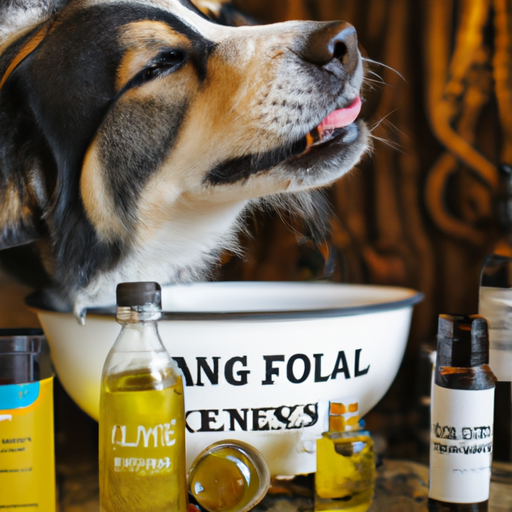In the quest to provide the best possible health and nutrition for our beloved canine companions, many pet owners have turned to incorporating certain oils into their dog’s diet. But the question arises, what oil can dogs have? It’s a vital question as not all oils are beneficial or even safe for dogs. This comprehensive guide will delve into the world of oils for dogs, unraveling the mystery one drop at a time.
- Table of Contents
- Benefits of Oils for Dogs
- Safe Oils for Dogs
- Unsuitable Oils for Dogs
- How to Incorporate Oils in a Dog’s Diet
-
Frequently Asked Questions
-
Key Takeaways
- Some oils, such as fish oil and coconut oil, can be beneficial for dogs.
- Not all oils are safe for dogs. Some, like avocado oil, can be harmful.
- Oils should be introduced gradually into a dog’s diet to gauge tolerance and prevent adverse reactions.
Benefits of Oils for Dogs
Certain oils can provide a variety of benefits for dogs. They can improve skin and coat health, aid digestion, boost the immune system, and provide essential fatty acids that a dog might not get from their regular diet. For example, this article from the American Kennel Club discusses the benefits of fish oil for dogs in detail.
Safe Oils for Dogs
-
Fish Oil: Fish oil is rich in omega-3 fatty acids which are beneficial for skin health, joint health, heart health, and more. The EPA and DHA in fish oil can also support brain development in puppies.
-
Coconut Oil: Coconut oil is another excellent choice for dogs. It can help improve their skin and coat, support weight loss, and has anti-inflammatory properties.
-
Flaxseed Oil: Rich in Omega-3 and Omega-6 fatty acids, flaxseed oil can help with skin conditions, arthritis, kidney function, and cancer prevention.
Unsuitable Oils for Dogs
Not all oils are suitable for dogs. Certain oils, like avocado oil and macadamia oil, can cause stomach upset or even be toxic. Additionally, while olive oil can be beneficial, it should be used sparingly due to its high fat content. Here is a list of oils that you should avoid giving your dog.
How to Incorporate Oils in a Dog’s Diet
When introducing oils to your dog’s diet, start slowly. Begin with a small amount to gauge your pet’s tolerance. If your dog tolerates the oil well, you can gradually increase the amount. Always consult with your vet before making significant changes to your pet’s diet. Also, remember to check out this guide on how to choose the best diet for your dog from One Top Dog.
| Type of Oil | Recommended Dosage |
|---|---|
| Fish Oil | 1000 mg per 10 pounds of body weight |
| Coconut Oil | 1 teaspoon per 10 pounds of body weight |
| Flaxseed Oil | 1/2 teaspoon per 15 pounds of body weight |
Frequently Asked Questions
-
Can I give my dog cooking oil?
While some cooking oils like coconut oil are safe for dogs, others like avocado oil and macadamia oil can be harmful. Always do your research before introducing a new oil into your dog’s diet. -
How often should I give my dog fish oil?
Fish oil can generally be given daily, but it’s best to consult with your vet to determine the optimal dosage for your specific dog. -
Can oil make my dog sick?
Yes, if given in too high a quantity or if the oil is not suitable for dogs, it can cause stomach upset, diarrhea, and other health issues. Always introduce oils gradually and monitor your dog for any adverse reactions.
In conclusion, while certain oils can provide numerous health benefits for dogs, it’s essential to do your research and consult with a vet before introducing any new supplements into your dog’s diet. For more information on the topic, check out this post on the benefits of Omega-3 for dogs and this guide on how to properly care for your dog. Remember, every drop of oil matters when it comes to the health and wellbeing of your furry friend.



